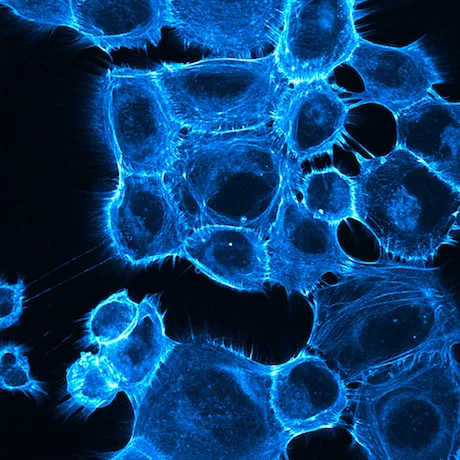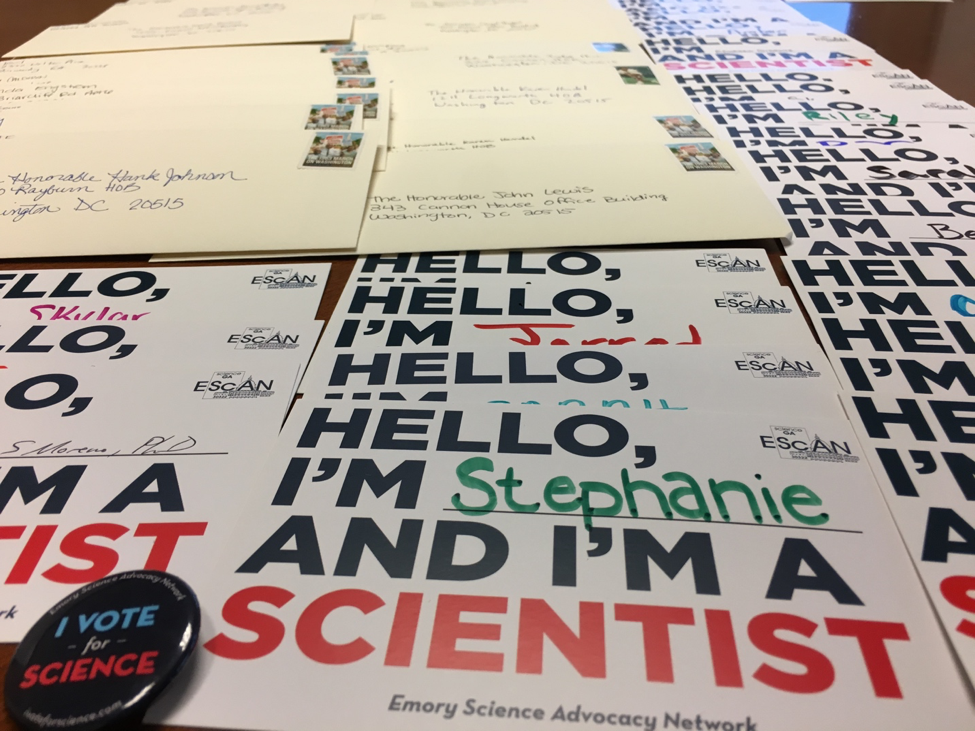By Becky Pollak, Genetics & Molecular Biology, ‘15
Edited by Brianna Jeanne Bixler, Genetics and Molecular Biology ‘17
Graduate school, like most things in life, usually doesn’t work out exactly as planned. Sometimes it feels like you’re drowning under a mountain of data, and others you forget why you ever wanted to be here in the first place. My grad school adventure has taken a steep departure from where I thought I’d be, and now I’m one of those wildly enthusiastic scientists who doesn’t want to be anywhere else. I’d like to tell you my story about how I found myself on a project dedicated to helping families who have a child diagnosed with 3q29 deletion.
I’ve always been interested in psychology, to the point that I decided to earn a BA in psychology (in addition to a BS in molecular biology) “just for fun” while I was an undergrad. I hoped beyond hope I could continue pursuing this interest in graduate school. During my application process, I looked high and low for labs and programs specializing in psychiatric genetics; I wanted to find a lab where I could work at the bench 24/7 and make an impact on the current understanding of complex psychiatric disorders like schizophrenia and autism. When I got to Emory, I spent my first rotation splitting my time 50/50 between wet and dry lab work, and – funny story – I loved the dry lab work. Enter the first about-face in my training; I came to Emory wanting nothing to do with computational work, and now I can’t imagine my research without it. The ability to make sense of a huge dataset is a powerful and important skill when it comes to studying complex disorders and has been integral to my success thus far.
After I realized my interest in dry lab work, it was suggested I rotate with Dr. Jen Mulle. I started working on a project about the gut microbiome and osteoporosis – change of plans number two, as osteoporosis is most decidedly not a psychiatric disorder. However, I decided to join the Mulle lab for my dissertation research, since the gut microbiome is a cool research area that allowed me to further develop my computational and research skills. The plan was to study the gut microbiome in a variety of different health conditions, but there was another big turn ahead…
Quick fact about me: I’m terrible at directions. So, when I was starting to navigate the world on my own, my mom would remind me “three left turns will get you back to where you started.” While this advice is incredibly helpful when driving (especially in Atlanta), it also applies to my grad school trajectory because I somehow found my way back to psychiatric disorders. While I was happily working on microbiome projects in the Mulle lab, Jen asked me if I was interested in joining a project she was building centered around 3q29 deletion and duplication syndromes. 3q29 is an incredibly rare disorder I hadn’t heard of before, but Jen’s enthusiasm was contagious and I jumped in with both feet. Reading more about the syndrome, it was like a research dream come true, since there isn’t much known at this point. Children with the 3q29 deletion are born about a pound lighter than healthy babies, they have a higher rate of heart defects than the general population, and they are at increased risk for a variety of psychiatric conditions. I’d finally hit upon the project of my dreams, and I could utilize my expanding computational know-how to better understand this genetic disorder’s relationship to psychiatry.
Jen had created a patient registry back when she became interested in 3q29 deletion and duplication syndromes in 2014. The registry was a trove of data just begging for publication; parents of children with 3q29 filled out a variety of questionnaires that could help us better understand life with 3q29. Most GMB students don’t have the opportunity to learn about phenotyping and the important role medical history data can play in experimental design and interpreting data. The registry helped me develop a better understanding of the challenges of living with 3q29 – our participants report a high rate of anxiety, learning disabilities, and autism, in addition to physical health challenges. This was an incredible introduction to 3q29, but the best was yet to come.
Jen’s original enthusiasm for 3q29 deletion and duplication syndromes has grown into the Emory 3q29 Project a multi-disciplinary team of Emory researchers and clinicians dedicated to understanding 3q29. The project is developing in a variety of directions – team members are studying human patients, cell lines, and a mouse model of the syndrome developed by Dr. Tamara Caspary’s laboratory here at Emory. Not only are there myriad opportunities for novel projects and discoveries, there is a diverse team working toward this common goal of understanding 3q29. I have the opportunity to work alongside faculty and clinicians that support my professional development and have become a better team scientist. But the biggest blessing of the Emory 3q29 Project goes beyond the outstanding mentoring or the research possibilities – the best part of this project is the families.
Before joining the Emory 3q29 Project, I had no experience with clinical research or interacting with families of children with rare disorders. I wasn’t sure what to expect; family dynamics can be complicated, and I didn’t know how our participants would react to the visit process. We bring a family with a child that has 3q29 deletion or duplication syndrome to Emory and the Marcus Autism Center for two days, and we typically see a new family about once a month. Our clinical team performs a whole battery of tests, from neurodevelopmental and psychiatric to collecting a medical history and performing an MRI. The data that we collect from these visits has demonstrated the wide range of health challenges that 3q29 presents, but we also see the unique ways each child and family adapt to these challenges.
There are different ways parents could react when a child is diagnosed with a rare disorder. Information can be hard to come by, and most scientific papers can be difficult to interpret. We’ve been lucky to interact with parents whose child’s diagnosis motivates them to search out information. This search can be intimidating since the majority of research on 3q29 has focused on the most extreme cases. Fortunately, the families we work with are incredibly motivated to participate in research – we have research visits already planned for families through the end of the year, with many more on the horizon. Having the opportunity to work with such an engaged community has been the best introduction to clinical research I could’ve asked for.
The parents of kids with 3q29 support each other through a Facebook group, and they support our research program with their gratitude, knowledge, and love for their children. Incredibly, they have also come together to support us financially. They decided to take ownership of March 29th – 3/29 – as 3q29 Awareness Day, and one parent even went the extra step to put together a 3q29 Awareness fundraiser to support our research. 100% of the proceeds from this fundraiser go towards the Emory 3q29 Project, to help us bring in more families, create educational materials, and continue to learn about 3q29.











I’d like to tell you my story about how I found myself on a project dedicated to helping families who have a child diagnosed with 3q29 deletion.